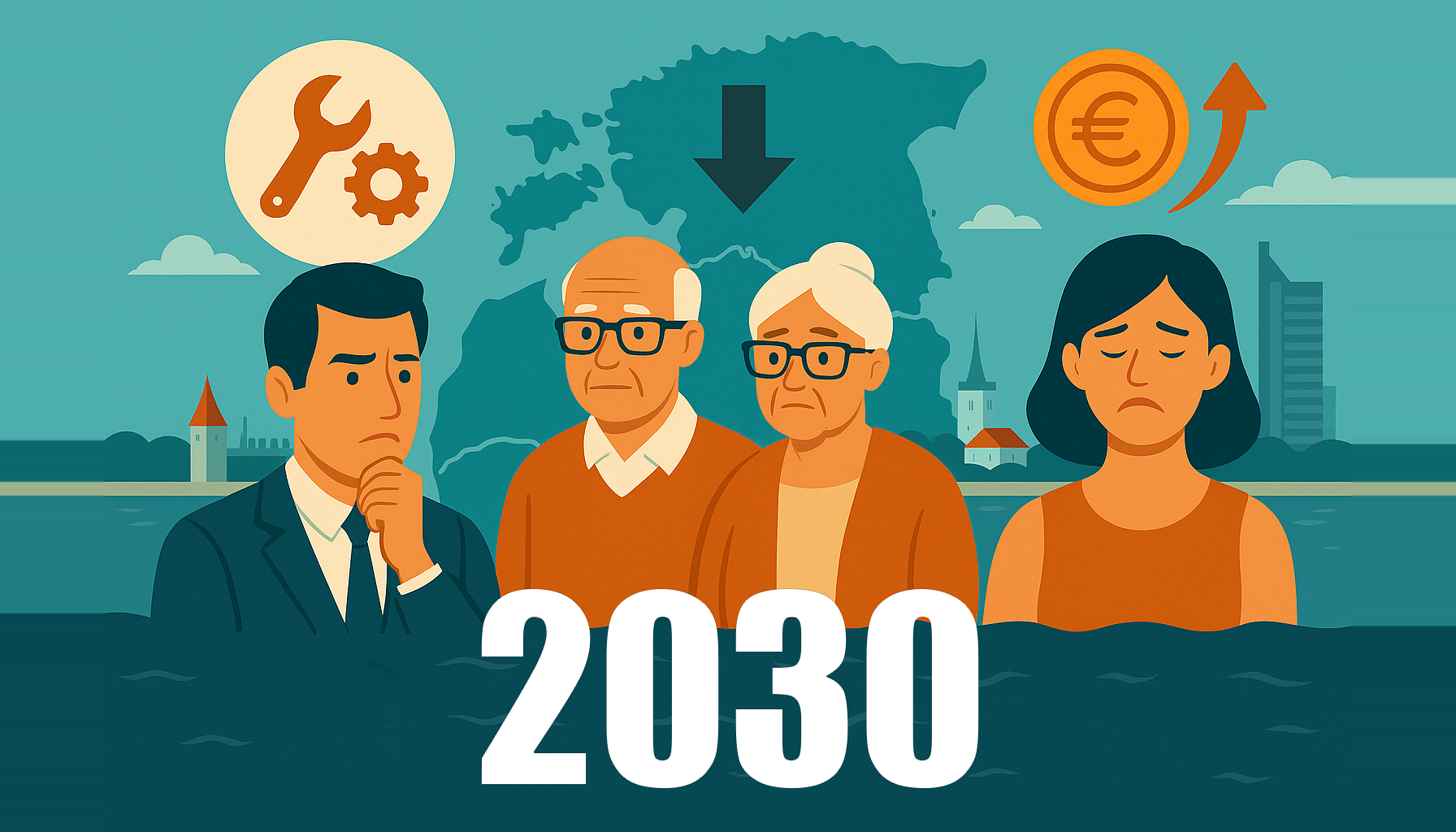The Baltics Expected to Face Labor Shortages, Aging Population, and Economic Issues by 2030

The World Economic Forum (WEF) conducted a large international study on employment. Experts predict that by 2030, the most significant impacts on employment in the Baltic countries will be a shortage of skilled specialists with technical education, an aging and consequently declining population, and the continuously rising cost of living for citizens.
For the "The Future of Jobs Report 2025" WEF experts surveyed over a thousand leading employers, who together are responsible for hiring more than 14 million employees. To get a complete picture, the researchers focused not only on different industries but also on geography. The final report includes data from 22 industries across 55 countries.
The basis of the document was identifying key factors that will significantly influence the future development of the labor market in the coming years. The most important among them are:
● Digitalization. The growth in the accessibility of digital
technologies continues to expand actively - more and more small and
medium-sized businesses are using websites, mobile applications, online stores,
social networks, and online platforms for their development. Over 60% of
employers believe that by 2030, digitalization will change their business (in
some cases, beyond recognition). Respondents see the main changes in the areas
of artificial intelligence (86%), automation and robotics (58%), and energy
production, storage, and distribution (41%).
● Rising Cost of Living. This term primarily refers to the
worsening state of economies in various countries. Furthermore, in each
country, this factor will not only play a primary role but also have an
individual character. In some regions, such as the European Union, experts
expect energy problems, while in Asia, a crisis of overproduction. It is
believed that a general slowdown in economic growth will affect 42% of all
businesses. This, in turn, will lead to the loss of 1.6 million jobs worldwide.
However, due to overall technological development, new jobs will appear. It is
expected that the total number of vacancies related to new professions will
increase by 7%, or 78 million jobs.
● Demographic Shift. There is now a steady trend towards an aging population and, as a result, a decline in the number of citizens. However, this trend applies mainly to high-income countries. While in low-income countries, on the contrary, there is an increase in the working-age population. Such an imbalance will cause a number of serious challenges for every business, which will face a choice: to hire low-skilled migrants or to bet on automating business processes with the hiring of a small number of professional specialists.
The report also points to other important factors, among which issues of the "green economy," geopolitical tensions worldwide, and a move away from the global economic system towards regional systems stand out.
It is interesting to note that employers from Estonia, Latvia, and Lithuania see the importance of upcoming challenges differently.
● In Estonia, 79% of respondents stated that the shortage of qualified
specialists is a primary current problem. At the same time, the transition to a
"green economy" will play a minor role—only 21% of respondents said
that adapting to climate change would affect their business models.
● In Latvia, the main problems in the coming years are expected to be
demographic. The aging and shrinking population will cause a shortage of not
only highly specialized personnel but also regular employees—71% of employers
anticipate problems with hiring.
● In Lithuania, the main problem is seen as the rising cost of living. The shortage of professional skills is in second place. On this indicator, Lithuanian employers even surpass Estonian ones—86% of the surveyed companies reported this problem.
Researchers also note a changing trend in skills. They believe that between 2025 and 2030, nearly 39% of current employee skills will become obsolete and be transformed into something else. It is expected that professions such as secretaries, cashiers, administrative clerks, postal clerks, and data entry operators will be the most affected by this.
Meanwhile, the most in-demand skills will be analytical thinking (considered crucial by seven out of ten companies), stress resistance, flexibility, and leadership qualities.
In terms of abilities, working with artificial intelligence, Big Data, technological literacy, and cybersecurity will be the most sought-after.
As a result, technology-related professions will be
the fastest-growing in the coming years. Software developers, financial
technology engineers, and machine learning specialists will be in high demand
everywhere. Demand is also expected to grow for professions that involve direct
interaction with customers, such as couriers, salespeople, cooks, etc.